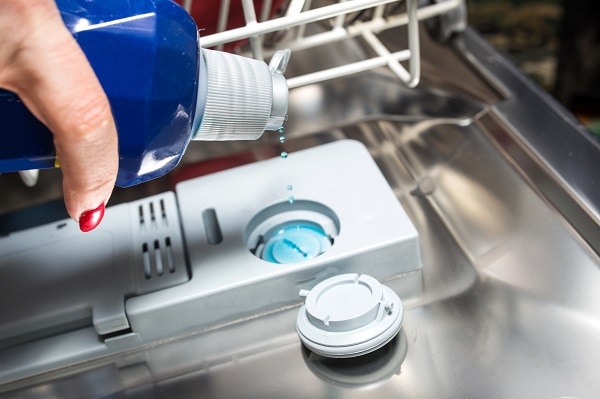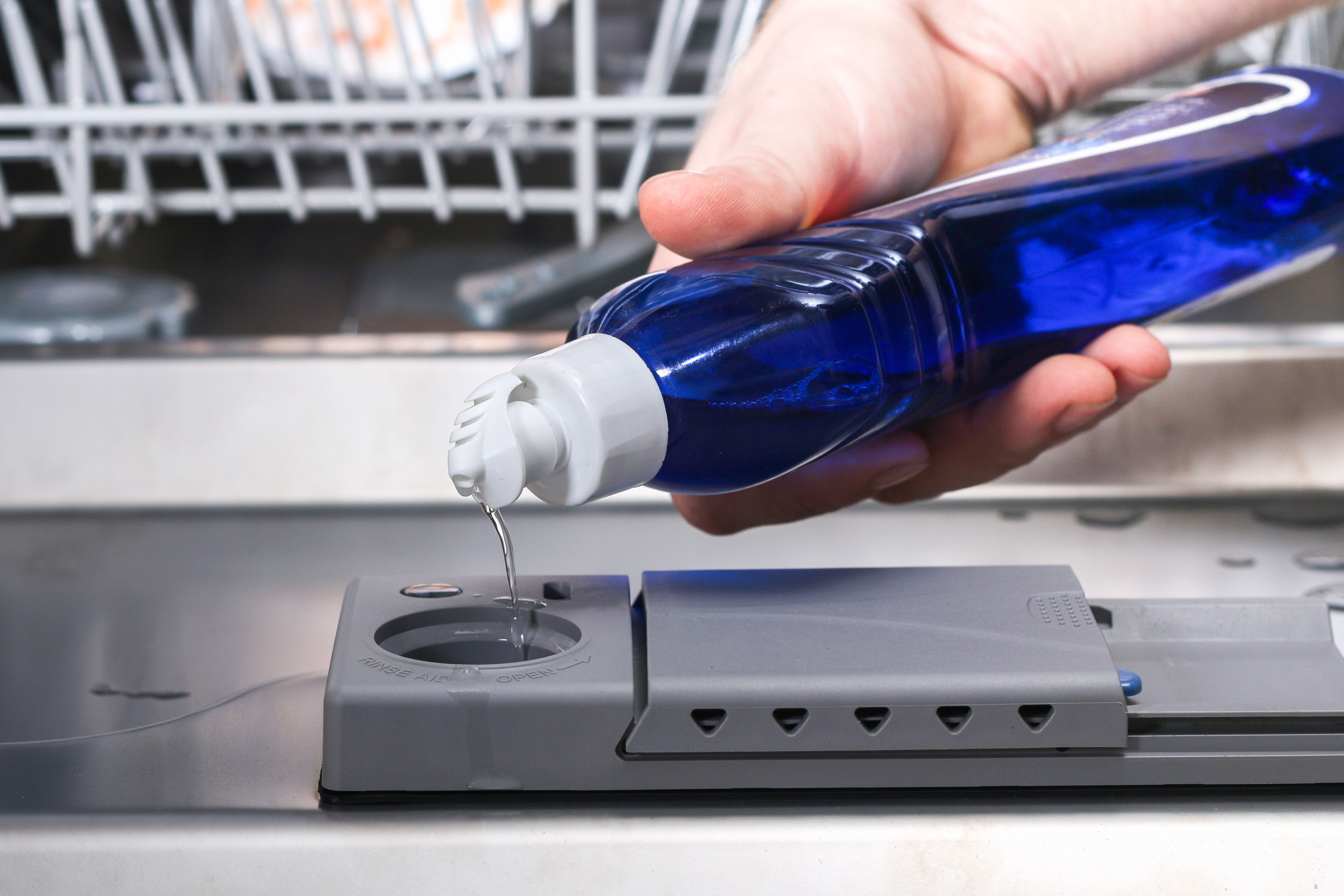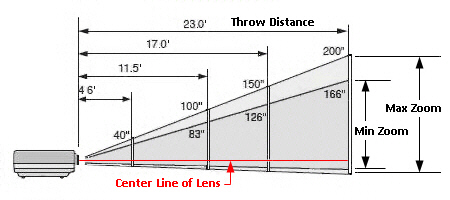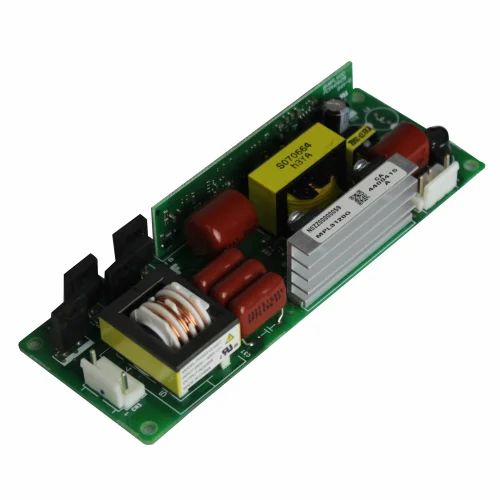The Essential Guide: What is Rinse Aid for Dishwashers
Introduction
Understanding the workings of a dishwasher can greatly contribute to your conservation efforts, energy usage, and overall cleanliness at home. Among these workings, the Rinse Aid feature often generates a lot of curiosity amongst users. This piece offers an immense opportunity to shed light on what Rinse Aid is, how it works in your dishwasher, and why it's essential. Furthermore, we delve into the science behind it and advise on how to select the perfect Rinse Aid for your dishwasher.
What is Rinse Aid?
Rinse Aid, a dishwasher's companion, is a specialized dishwashing liquid that plays a significant role in facilitating immaculate dishwashing results. Often tagged as a dishwasher rinse agent, Rinse Aid's prominence rises when integrated with dishwasher detergent. Offering a higher cleaning gradient, Rinse Aid does more than meets the eye.
- Role Definition: Rinse Aid's elemental purpose is to enhance the draining process of water from the dishware. By doing so, it effectively diminishes the tell-tale signs of water streaks and spots on the dishes, leaving them sparkling clean.
- Co-dependency: In a harmonious relationship with dishwasher detergent, Rinse Aid paves the way for a heightened cleaning ritual. While the detergent is responsible for breaking down food remnants, Rinse Aid steps into the final rinse stage. Here, it ensures the water drains off completely, leaving no residues and unsightly water spots.
- Spotless Shine: Maximizing the efforts of the dishwasher, Rinse Aid holds the key to spotless, restaurant-quality shine. It wards off streaks and spots, resulting in a cleaner, harsh residue-free finish.
- Enhanced Performance: The effectiveness of Rinse Aid pans beyond cleaner dishes. It optimizes the performance of your dishwasher, reducing cycle times and ensuring energy efficiency for greener dishwashing.
Understanding the components of Rinse Aid unveils its indispensable role in contemporary dishwashing, turning an otherwise mundane kitchen chore into an efficient cleaning activity.
How Does Rinse Aid Work in Your Dishwasher?
Rinse aid mainly operates by altering the properties of water droplets inside your dishwasher. This clever alteration allows these droplets to conveniently flow off the dishes.
Here's a detailed breakdown of how Rinse Aid functions in your dishwasher:
- Phase of Discharge: The Rinse Aid is released during the ultimate hot-water rinse phase of your dishwasher's cycle. This timing ensures the water used to rinse the dishes is working effectively with the rinse aid.
- Surface Coating: The rinse aid forms a thin, almost invisible layer over your dishes and glassware. This coating's responsibility is to help water droplets slide off the dishes instead of sticking around.
- Molecular Magic: Rinse aid lowers the surface tension of water droplets. A lowered surface tension means the water is less likely to form into droplets, and more likely to sheet off in a uniform layer.
- Spot and Residue Elimination: The rinse aid leaves your dishes cleaner because it prevents water from forming into droplets that could leave marks. It also means that leftover detergent and food particles are less likely to stick around or reattach, resulting in cleaner dishes.
- Complementary Role: It's essential to note that Rinse Aid doesn't replace dishwasher detergent. Instead, they work together; while the detergent cleaves to food and breaks it up, the rinse aid ensures a streak-free, spotless rinse and dry.
Understanding how rinse aid works in a dishwasher can help you use it more effectively. Not only does it leave your dishes sparkling clean, but it also enhances the overall effectiveness of your dishwasher.
Why is Rinse Aid Essential for Your Dishwasher?
Rinse Aid plays an integral role in the performance and efficiency of your dishwasher, ensuring all your dishes come out clean, dry, and spotless. Here's a look into the key advantages of using Rinse Aid:

- Sparkling Dishes: Rinse Aid's primary purpose is to leave your dishes and utensils sparkling clean. It eliminates water spots and residue left behind, giving your dishes a fresh and flawless finish.
- Faster Drying Time: The agent decreases the surface tension of water, allowing it to sheet off your dishes instead of forming droplets. This significantly reduces the drying time, saving you from the inconvenience of towel-drying your dishes.
- Affords Longevity to Your Appliance: Using Rinse Aid can reduce the mineral buildup that hard water often leaves behind. This in turn can increase the longevity of your dishwasher. Over time, the minor expenditure on Rinse Aid pays off in the form of longer appliance life.
- Energy Efficient: As Rinse Aid aids in faster drying times, it also means your dishwasher utilizes less heat and energy for drying dishes, thus contributing to energy efficiency.
- Time-Saving: No need to manually dry dishes or fret over water stains or streaks. Rinse Aid takes care of it all, freeing up time for you to focus on other tasks.
In essence, Rinse Aid is not just a supplementary product for your dishwasher but a fundamental component that significantly impacts the appliance's performance and efficiency.
The Science Behind the Dishwasher Rinse Aid
Understanding the science behind Rinse Aid involves delving into the realm of chemistry to comprehend how this highly effective agent operates. Here's a simplified breakdown of this process:
- Surfactants: Key ingredients in Rinse Aids, surfactants, play a pivotal role in decreasing the surface tension of water. This reduced surface tension facilitates the seamless spread of water over a surface.
- Water Behavior: In the absence of Rinse Aid, water tends to clump together and form beads due to its inherent properties. When Rinse Aid is used, the water instead flattens into thin sheets, a change induced by the surfactant.
- Effective Drainage: The transformation of water drops into sheets makes it easier for water to run off the surface of the dishes. This reduces the likelihood of water spots and ensures a more comprehensive drying process.
- Evaporation: The decreased surface tension also accelerates the rate of water evaporation. This is why Rinse Aid treated dishes often dry faster.
- Clean Appliance and Utensils: An additional advantage of using Rinse Aid is that it helps prevent mineral build-up on the interior walls of the dishwasher and on the utensils. Benefits like these contribute to extending the life span of your utensils and appliances.
In sum, the effectiveness of Rinse Aid is primarily due to the interplay of chemical principles and physical properties. It's a remarkable example of science optimizing everyday tasks and enhancing the overall efficiency and longevity of appliances and utensils.
How to Choose the Right Rinse Aid for Your Dishwasher?
Selecting the right Rinse Aid for your dishwasher can seem daunting, given the myriad of options available in the market. However, by taking into account certain factors, this task can be made simpler. Here's a step-by-step guide that can help you make an informed decision:
1. Evaluate Water Hardness: The hardness of water plays a significant role in determining the appropriate Rinse Aid. Some Rinse Aids are specially designed to combat the effects of hard water. If you find your glasses and dishes having a filmy residue after a wash, it's likely you have hard water and need a Rinse Aid formulated accordingly.
2. Check Compatibility with Dishwasher Model: All Rinse Aids may not be compatible with your dishwasher model. It's vital to check the manufacturer's instructions on which type of Rinse Aid is recommended for your specific model.
3. Read User Reviews: User reviews can offer practical insights into the performance of a Rinse Aid. They can provide real experiences of individuals who have used the product, making it easier for you to gauge its effectiveness.
4. Environmentally Friendly Options: If you are environmentally inclined, several Rinse Aids are eco-friendly. They are biodegradable and free from harmful chemicals, making them a safe choice for you and the planet.
By undertaking these four steps, you can find a Rinse Aid that works effectively for your dishwasher, keeping your dishes spotless while aligning with your lifestyle choices and environmental concerns.
Conclusion
Rinse Aid is an essential component in ensuring your dishwasher operates at peak efficiency. It leaves your dishes clean, dry, and spotless, contributing to the appliance's longevity. Understanding the role, function, and science behind Rinse Aid empowers you to make smarter decisions on its application in your household.
Related FAQs about what is rinse aid for dishwasher
Is Rinse Aid necessary for all types of dishwashers?
Most modern dishwashers are designed to use rinse aid for optimal performance. However, it's not strictly necessary for all dishwashers. The need for rinse aid can also depend on the hardness of your water. It's always good to check the manufacturer's recommendations for your specific model.
Can you run a dishwasher without rinse aid?
Yes, you can run a dishwasher without rinse aid. However, rinse aid plays an essential role in helping dishes dry without spots and streaks and reducing the drying time. Using it ensures you have spotless, sparkling dishes at the end of each cycle.

What are some environmentally friendly alternatives to Rinse Aid?
If you're looking for eco-friendly alternatives, consider using vinegar as a natural rinse aid substitute. There are also various organic and plant-based rinse aids on the market suitable for those seeking environmentally friendly options.







